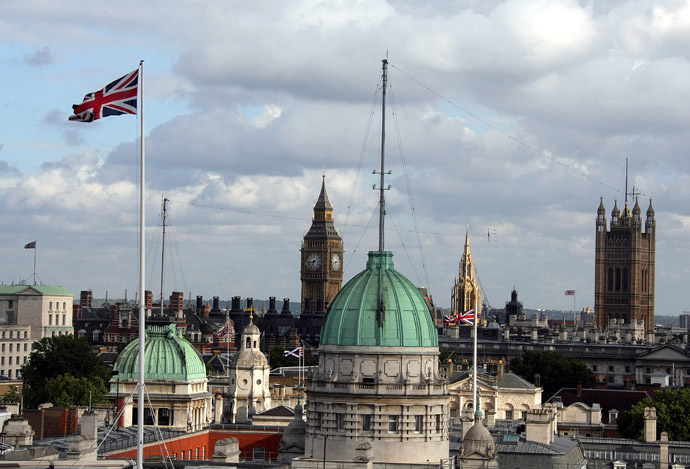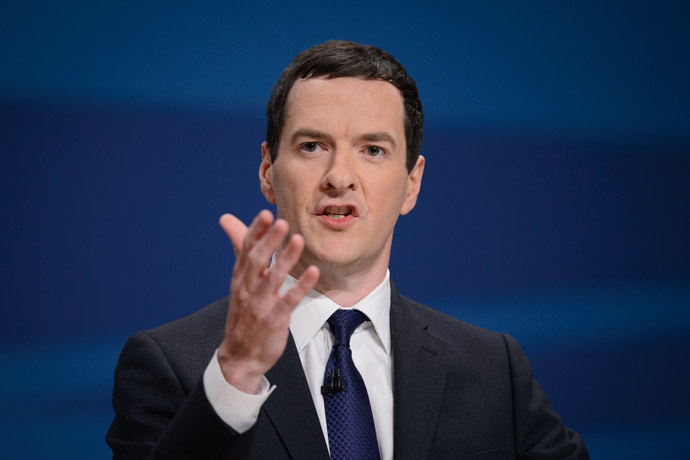Finally! QE3 is over! I can almost hear the booming voice, "Step away from the money-printing machine!" Now that QE3 is done, what's next? Is this a sign of better things to come? Look at all of the distractions we've had in the last couple of days... -LW
As expected, the Fed said Wednesday afternoon that it’s third and most recent round of quantitative easing, QE3, would come to an end.
"The Committee judges that there has been a substantial improvement in the outlook for the labor market since the inception of its current asset purchase program. Moreover, the Committee continues to see sufficient underlying strength in the broader economy to support ongoing progress toward maximum employment in a context of price stability. Accordingly, the Committee decided to conclude its asset purchase program this month," reads part of a statement released by the Fed on Wednesday. "The Committee is maintaining its existing policy of reinvesting principal payments from its holdings of agency debt and agency mortgage-backed securities in agency mortgage-backed securities and of rolling over maturing Treasury securities at auction. This policy, by keeping the Committee's holdings of longer-term securities at sizable levels, should help maintain accommodative financial conditions."
The confirmation surprised few since the Fed was largely reported ahead of Wednesday’s decision to be considering making such an announcement. As far as what the result will be, however, is up for debate as economists weigh potential outcomes ranging from outright optimism to doom and gloom.
Combined, the three rounds of QE undertaken by the Fed since 2008 have generated trillions of dollars for the American economy through a process in which the central bank has perpetually pumped money into long-term government bonds and bonds backed by home mortgages. But David Wessel, the director of the Hutchins Center at the Brookings Institution, told NPR recently that the three-and-a-half-trillion dollars’ worth of bonds purchased during that six-year span has been “far more than anybody inside or outside the Fed expected when this all began.”
Indeed, the Fed has twice announced an end to its bond purchasing programs, only to soon after start again when it was realized that the desired effect failed to be achieved. Six years later, though, the end to QE3 might once and for all be the final nail in the program’s coffin.
In 2009, Ben Bernanke, then the chairman of the Fed, said that quantitative easing would only end “when credit markets and the economy have begun to recover,” at which point the central bank would resume business as usual.
“As the size of the balance sheet and the quantity of excess reserves in the system decline, the Federal Reserve will be able to return to its traditional means of making monetary policy--namely, by setting a target for the federal funds rate,” he said. “In considering whether to create or expand its programs, the Federal Reserve will carefully weigh the implications for the exit strategy. And we will take all necessary actions to ensure that the unwinding of our programs is accomplished smoothly and in a timely way, consistent with meeting our obligation to foster full employment and price stability.”
Today, the American economy is statistically sounder than six years ago: not only have three rounds of QE allowed faltering banks to get boost after boost from the government, but, partially as a result, jobless claims are down drastically from post-recession figures.
Nevertheless, optimism isn’t universal when it comes to what ending QE3 means for the world economy.
“Well there are some improvements, but we can’t say that it is recovering as everyone hoped,” Nour Eldeen Al-Hammoury, a chief market strategist at ADS securities in Abu Dhabi, told Euro News recently. “GDP is growing based on the inventories, which doesn’t mean that sales are increasing. The slack in the economy remains and so far there is no clear strategy on how this slack will be resolved. Moreover, the slowing down in Europe and Asia will be something to consider as the US economy is unlikely to grow on its own.”
According to Al-Hammoury, markets the world over may suffer as a result of ending QE3. “It is not the Middle East markets only, it is global markets and especially the emerging markets,” he said. “Let’s say, for example, Dubai — Dubai stock market was one of the best performers in the world. However, we will see some more declines at the end of the year. These markets are again sensitive to any events. However, these Middle East markets may benefit again from what’s happening in Europe. I mean the outflow that is happening in Europe and also don’t forget that this region has also opened its doors to foreign investors so with the Fed ending QE we might see some declines again, and if the global slowdown continues, global markets, including the Middle East, may continue with the current downside correction.”
Even in the west, that pessimism is present: Pedro Nicolaci da Costa wrote for The Wall Street Journal this week that the Fed may deploy another round of quantitative easing if the decision to end the third series proved to be unsuccessful, which, according to his report, may be the case.
“Many of the studies of large-scale asset purchases, known as quantitative easing or QE, agree they worked very well to prevent deflation and stabilize the financial system during the 2008 crisis, but disagree about how effective the programs have been in boosting growth since then,” da Costa wrote.
Although Bernanke has attributed QE with cutting unemployment, da Costa wrote, Fed researchers and academic economists have for years studied the practice and are split with regards to how successful the rounds have been, and what the eventual outcome will be when all is said and done.
"I do think they're overly optimistic," Barbara J. Cummings of the Boston Private Bank & Trust Company told CNBC this week. "The market and the Fed are definitely saying two different things. And the market is right. It usually is."
To some, the outcome is even drearier. “Without another dose of stimulus, the US will likely slide into recession,” Worth Wray, chief strategist at Mauldin Economics, predicted to Equities earlier this month.
|
New Live Show Number: 641-715-3636 pin 883267#
New Live Show Number: 641-715-3836 pin 883267#
↑Monday's thru Thur's,Join Us Live↑
Diamonds Show Monday - Thurs 8:30 pm EST, Surprise! segment, Cynthia with Astrology, Candy shop news, Special Guests, Building Relations with OUR Star Families with Chris, Learning "Who YOU Really are"
Recorded Line Via Phone 641-715-3813 pin 883267# Press # for the most recent call, or enter a previous reference # (Call by Skype phone via Skype credits or Skype phone using same number & pin above.)
Wednesday, October 29, 2014
Reblogged: Federal Reserve ends quantitative easing (QE3) bond-buying program, Coca-Cola Ordered to Shut Down ,Rampant financial crime in City of London eroding public trust
Subscribe to:
Post Comments (Atom)







No comments:
Post a Comment